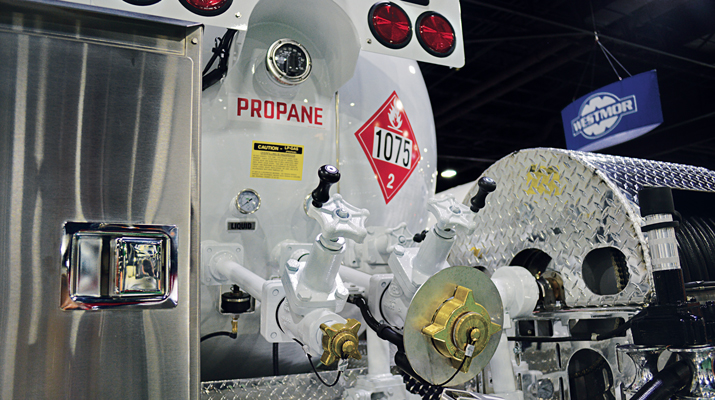A teaching moment on trucking accidents
In 2013, while Joshua Patterson was driving his pickup truck home from church in Gilmer County, Texas, he was rear-ended by a tractor-trailer owned by FTS International.

Key details about the driver of the tractor-trailer were revealed during the case. Photo: iStock.com/ThomasShanahan
FTS is in the oil services business and hauls sand and fracking supplies. Patterson initially walked away from the accident claiming he was not injured. Later he had extensive chiropractic treatments and disc surgery that he attributed to the accident. By the July 2018 trial, he claimed he could no longer work as a crane operator due to injuries he received in the accident.
Patterson sued FTS International, the company that employed the driver who rear-ended him. The primary claims against FTS were negligent hiring and negligent retention.
It was discovered – and at trial the jury was told – the FTS driver was hired despite having three traffic violations within 36 months prior to his hire date. The hire was in direct conflict of a strict FTS company policy that prohibited hiring CDL drivers who had three or more traffic violations in the 36 months prior to their hire date. This was an FTS company policy and not one required by state or federal law. It was not an industry standard of care.
In addition, safety training paperwork signed by the driver indicated he had completed certain training, but he testified he had not completed that training. This training was required by the company but not state or federal law. In the discovery, it became clear the FTS driver either did not complete all of the testing reported in his personnel file or could not actually demonstrate competency with regard to some of the subjects discussed. The driver also admitted that in the months leading up to the accident he regularly used marijuana and methamphetamines.
With these facts as a background, the jury returned a verdict of $101 million in July 2018; $75 million was for punitive damages. This is believed to be the largest trucking verdict in the country’s history, in a location considered conservative for verdicts. This verdict gives pause to consider how to learn from another company’s hard lesson.
Any trucking accident needs to be treated from the onset with the care and attention that a catastrophic case receives. Trucking accidents can result in large verdicts despite the fact that injuries are initially reported as soft tissue or, in this case, a report of no injuries to the potential plaintiff. This means: Gather records, take photos at the scene, retain evidence of all vehicles, perform accident reconstruction and take statements from all relevant, potential witnesses. Gather any government reports and consider resolution of any citations with this injury claim in mind.
When setting internal company policies and training requirements, be cautious when they go above and beyond the law. Here, the law was with the Federal Motor Carrier Safety Administration. If the company cannot achieve that internal company policy that exceeds the legal requirements, the jury will hear that and view the company in an unfavorable light.
Finally, driver hiring and retention must be done with vigilance. In this case, FTS used a third-party vendor to perform background checks on its drivers. It did not go directly to the Texas DMV to get his records. In the end, the company that employs the driver will be held responsible if the internal company policies are not met. Ignorance of the facts is not a valid defense. As to training steps, safeguards need to be in place to ensure that employees actually take, complete and understand the company-required training.
The industry has thousands of drivers who have CDL hazmat certification. Traffic accidents are more common than fires or explosions. Failure to properly hire and train employees who work in this space of the industry can have drastic outcomes. Learn from someone else’s error and avoid finding yourself in a similar situation.
John V. McCoy is with McCoy, Leavitt, Laskey LLC. His firm represents industry members nationally.















